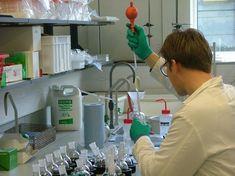
The UK’s professional use of pesticides in crop production has been praised by an independent study.
The survey, carried out by the Central Science Laboratories, revealed what it described as significant improvements and increased professionalism in the use of pesticides across the UK.
Among the key findings are the fact that 49 per cent of the UK’s arable area reported carrying out an environmental audit in the past year and 81 per cent of the area was sprayed by operators on the National Register of Sprayer Operators.
Other findings included the fact on 96 per cent of area treated, measures were taken to protect adjacent surface water from spray drift.
The survey was funded by the Crop Protection Association and the Agricultural Industries Confederation and was designed to enable comparison with a 2001 survey undertaken when the Voluntary Initiative was launched.
Professor Barry Dent, chairman of the VI steering group, said: “The results are very encouraging. It shows that the message to take the use and application of crop protection products seriously is getting through to a significant proportion of those managing our arable farmland.
“However, it also shows that there is still scope for improvement amongst the minority who, I fear, could let down all the good achieved by the majority."
Issues of concern include filling from - or too close to - watercourses, failure to use check valves on mains water supplies and ignoring LERAP requirements.
Respondents also expressed confusion about best practice when it came to filling and washing sprayers.
Patrick Goldsworthy, VI manager, said: "Guidance has changed in recent years. However, earlier this year working with the Environment Agency, we published new guidelines on best practice for pesticide handling areas which we hope will bring clarity."
Professional standards are on the rise, he said: “The average age of sprayers has increased with farmers investing in better quality equipment and better maintenance.
"There are 18% fewer operators and just 9% now rely on 'grandfather rights' reflecting just how many have undergone the required training."
The survey is good news for the Voluntary Initiative. However, those charged with taking it into its final year are not resting on their laurels.
"Large-scale farmers have made huge strides forward in raising standards, but the smaller farms with less than 100 hectares are still a major challenge to the overall success of the scheme," said Professor Dent.
The survey follows on the heels of a report by the Pesticide Residue Committee publishing the results of its rapid response survey of grapes during May.
Of the 10 samples taken over the month, seven were found to be residue-free. Only three samples contained residues and all three of these incidences were well within the Maximum Residue Level.



